The destruction and grime of old Berlin have been replaced by palatial parks, modern architecture and vibrant art
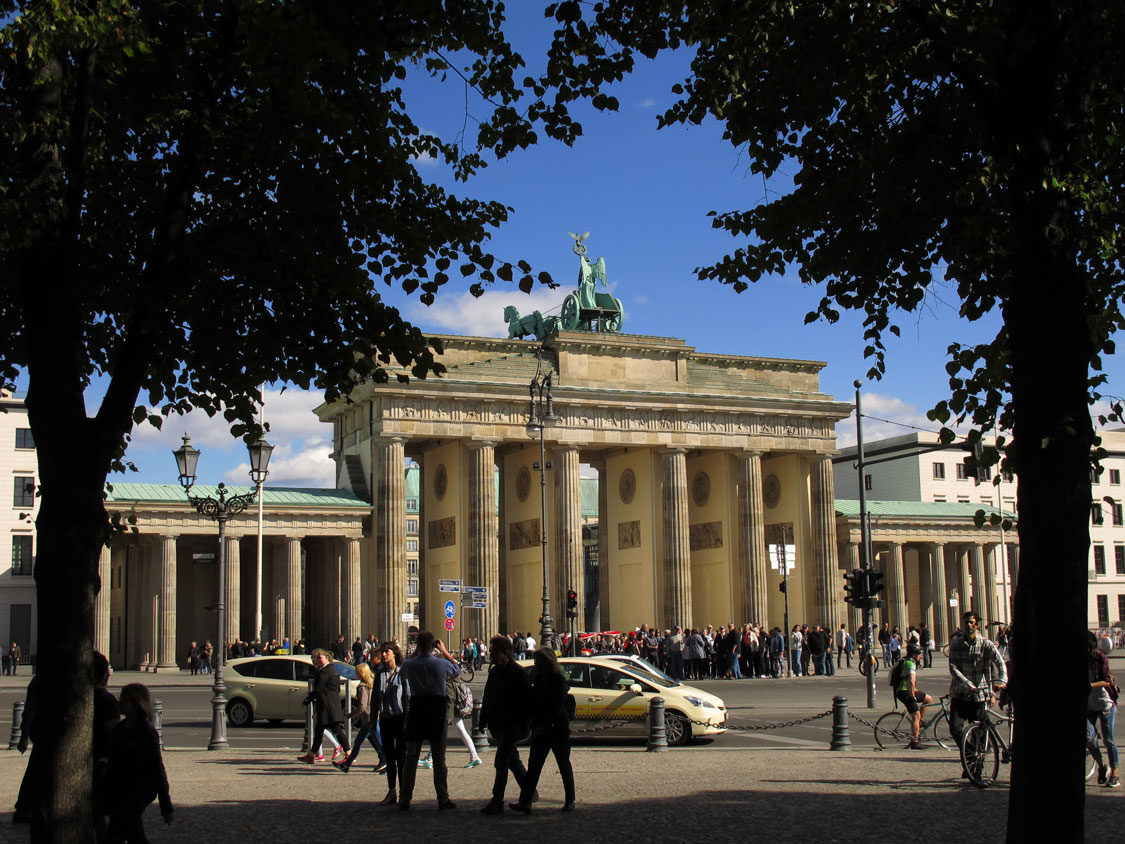
Brandenburg Gate, once a Cold War symbol of a divided city, now stands for peace and unity.
Another brick in the wall
Walking under Berlin’s Brandenburg Gate into old East Germany during the early 1990’s, there was a distinct division with the barren strip of no man’s land a stark reminder of the Cold War. An acrid smell of burning coal hung in the air. Grizzled old men in grey trench coats, wearing fur hats with ear flaps, sat behind tables covered with military memorabilia and graffiti-painted fragments of concrete.
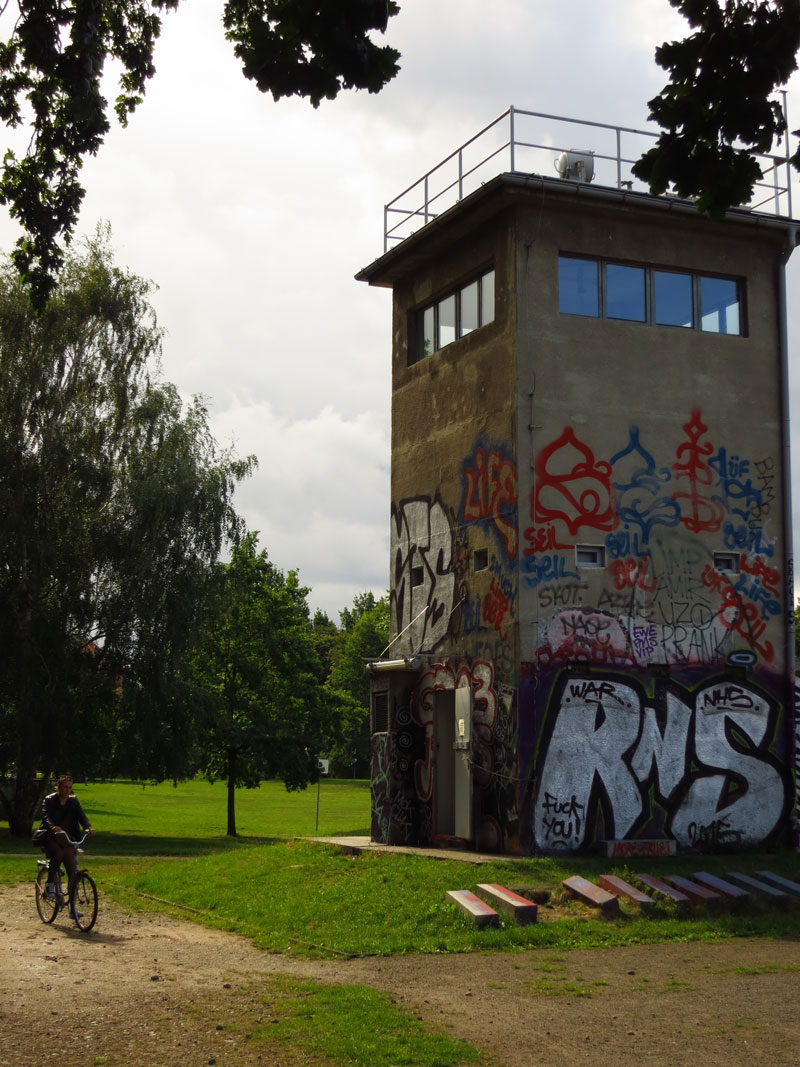
A former guard tower overlooking what was no man’s land beside the Berlin wall serves as a reminder of history.
As you walked further down Unter den Linden, past blackened and grimy walls of the Soviet apartment blocks of former East Germany, you’d see a life-size, golden building in the distance, a model of the Berlin City Palace. The baroque palace, once home to Prussian rulers, had been damaged in WWII and was demolished by the communists in 1950. After reunification, intense debate began over the development of the area and it was put to the vote. To assist Berliners in deciding whether they wanted their taxes spent on reconstructing the palace, an exact replica was constructed, using scaffolding, painted canvas and mirrors. And Berliners voted yes.
New Berlin
Today, the grime has been superseded by the shine of commerce as capitalism has colonised Unter den Linden. Michael Kors, Mango, Zara and Timberland are the modern icons and wafts of coffee have replaced the smell of burning coal. Outdoor cafés and restaurants abound and thousands of people stroll down the tree-lined boulevard that bisects the heart of Berlin’s historic centre. Where the model once was, there is now a construction site as the Berlin City Palace is being rebuilt at a cost of €590 million.

The reconstruction of Berlin City Palace is due for completion in 2019.
When completed in 2019, it will overlook the Berlin Cathedral and the Lustgarten (Pleasure Garden), originally the palace’s kitchen garden. Now a large park with lawns, fountains and geometric paths, it’s a favourite summer hangout for Berliners.

The self-cleaning, Teflon-coated roof of the Sony Centre. An example of the rejuvenation of Berlin since the fall of the wall.
Tempelhof Airport
South of Unter den Linden is the iconic Tempelhof Airport. Once a West Berlin lifeline to the outside world, it was permanently decommissioned in 2008 and became known as Tempelhofer Park. It’s now a much-loved communal area where people meet for picnics and barbeques, and kite flyers, skateboarders, and cyclists can do their sport.

Berlin is very flat, making it perfect for cycling.
Communal vegetable gardens have sprung up, planted in containers in case of toxins in the former military airport’s soil. This is 300 hectares of valuable real estate in central Berlin and inevitably real estate developers targeted it. However, Berliners voted a resounding no when the decision was put to a referendum. More recently, the vast Nazi-era terminal, once the biggest building in the world, has again provided a lifeline to people in need, sheltering more than 3 000 refugees.

The iconic TV tower Fernsehturm de Berlin.
Arts alive
Across the river is the East Side Gallery, an open-air gallery more than a kilometre long, its canvas a section of the Berlin Wall.
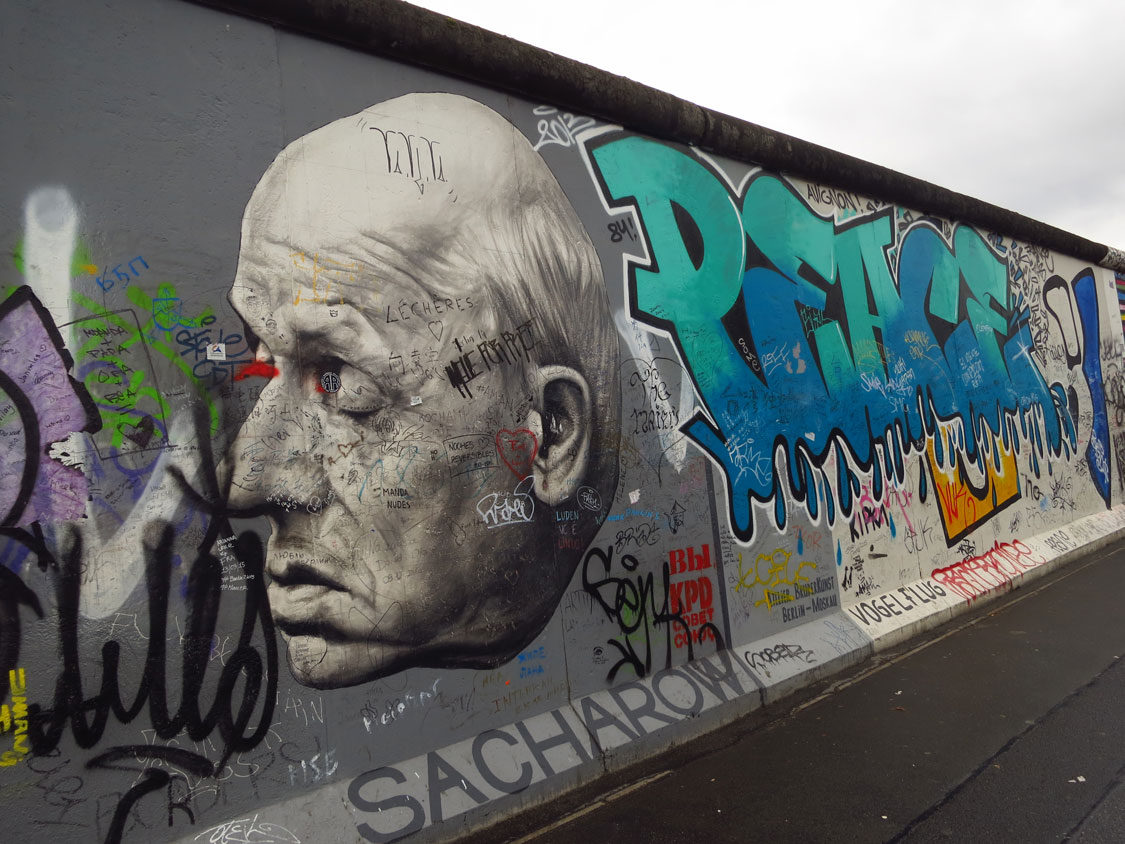
The East Side Art Gallery on preserved sections of the Berlin Wall.
Hundreds of graffiti artists from all over the world came together in 1990 to create an international memorial for freedom, using paint and imagination. This city thrives on diversity and has always attracted artists, students, immigrants and mavericks. Berliners embrace their city’s chequered past and history is everywhere, quietly accompanying everyday life.
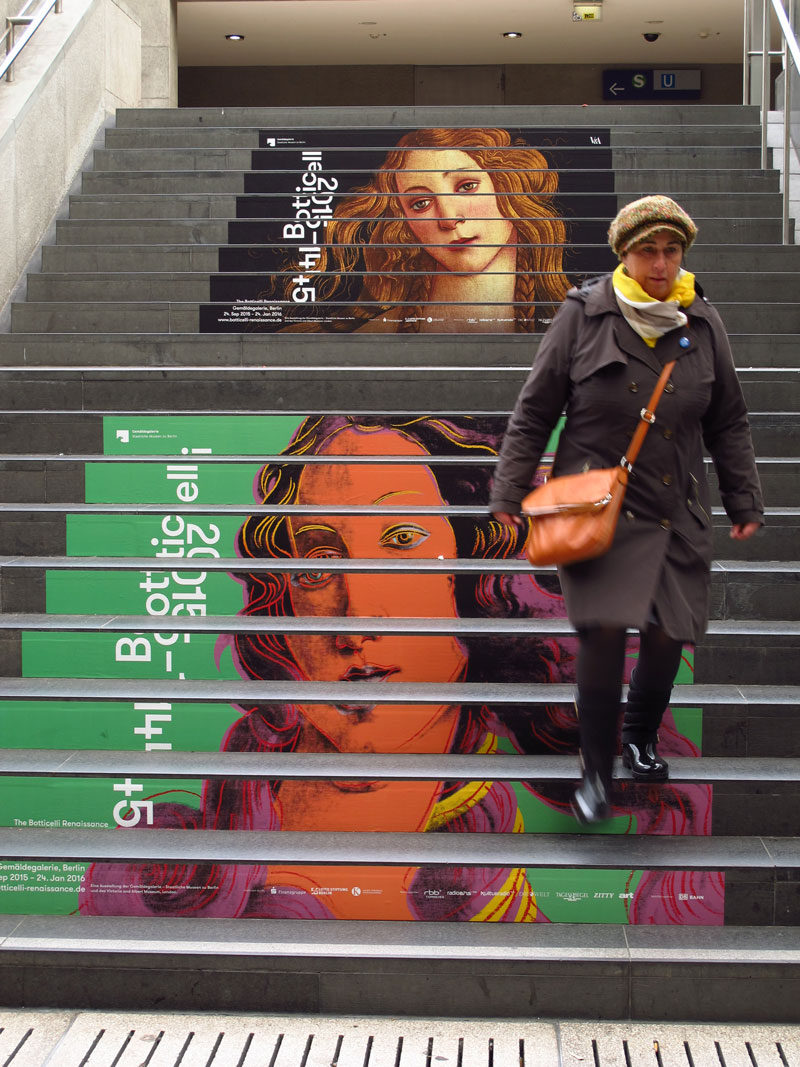
Advertising art exhibitions in a metro station.
A city of regeneration
The Topography of Terror is a museum on the site of the former Gestapo headquarters and is a fascinating and harrowing insight into the history of this area, once the epicentre of the Nazi’s persecution and annihilation.
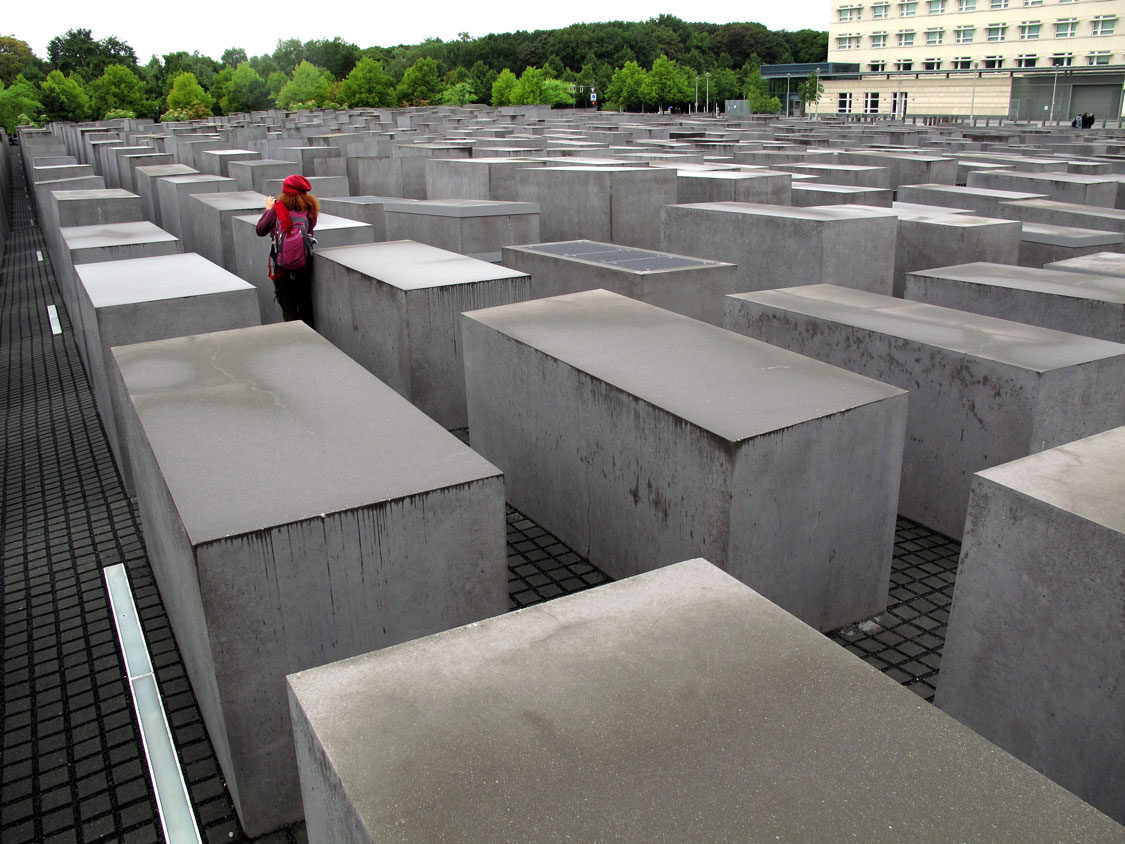
The Holocaust Memorial is a poignant matrix maze of blocks, varying in height.
But Berlin is a city of regeneration and the nearby Princess Garden provides a lush and abundant antidote to the sombre museum. In the summer of 2009, hundreds of volunteers converted a block of urban wasteland into a productive vegetable and fruit garden.
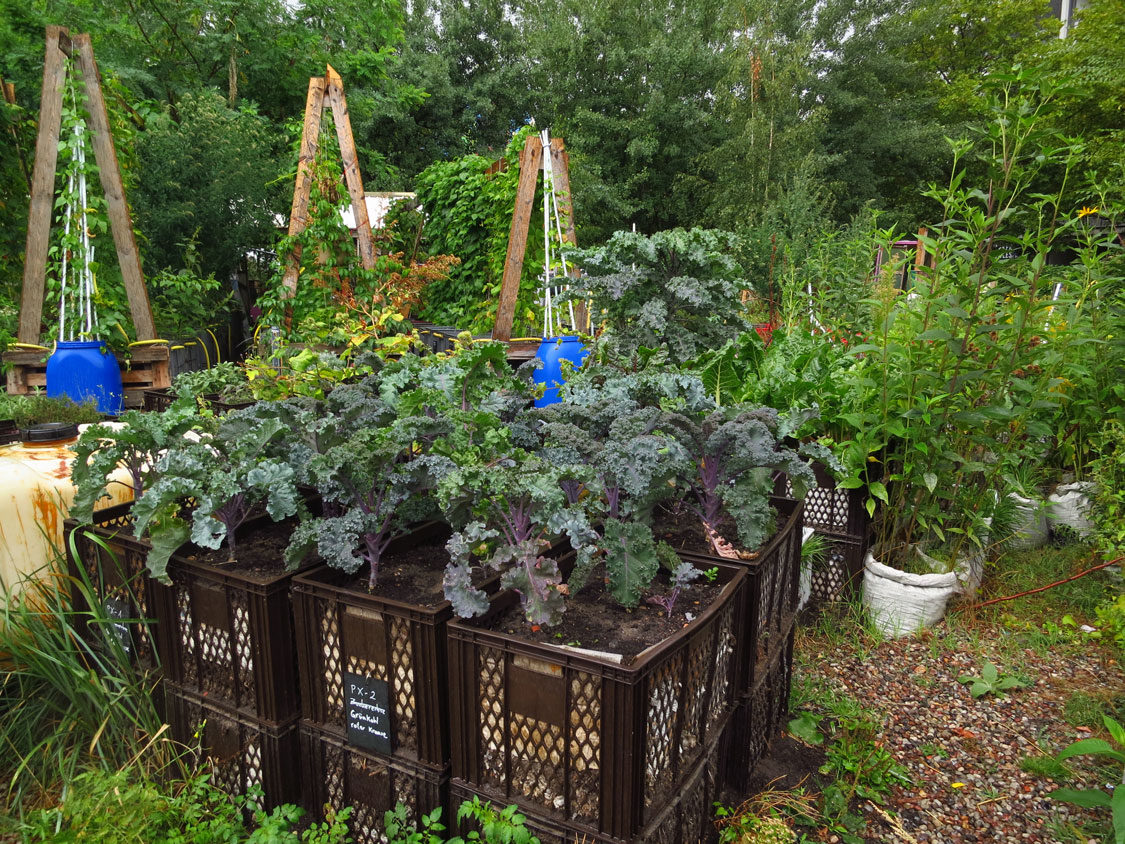
Princess Garden, a flourishing urban garden in the counterculture district of Kreuzberg.
Boxes and barrels are filled with summer crops – black cherry tomatoes tumble from spiral supports and strawberries spill from recycled plumbing pipes. You could almost forget that you are in the middle of bustling Berlin, until you look up and see a wall of graffiti next door. This garden epitomises Berlin, a pivotal city of the 20th century. It’s a city that witnessed so much death, destruction and horror, but has morphed into a welcoming metropolis filled with productive gardens and palatial parks, modern architecture and vibrant art.
It’s a mercurial and enigmatic city that’s always adapting and reinventing itself. As a former French culture minister said, “Paris is always Paris but Berlin is never Berlin!”
TRAVEL TIPS
MUST-SEE SIGHT Spend a day in Potsdam, south of Berlin, exploring the magnificent gardens of the Sanssouci Palace.
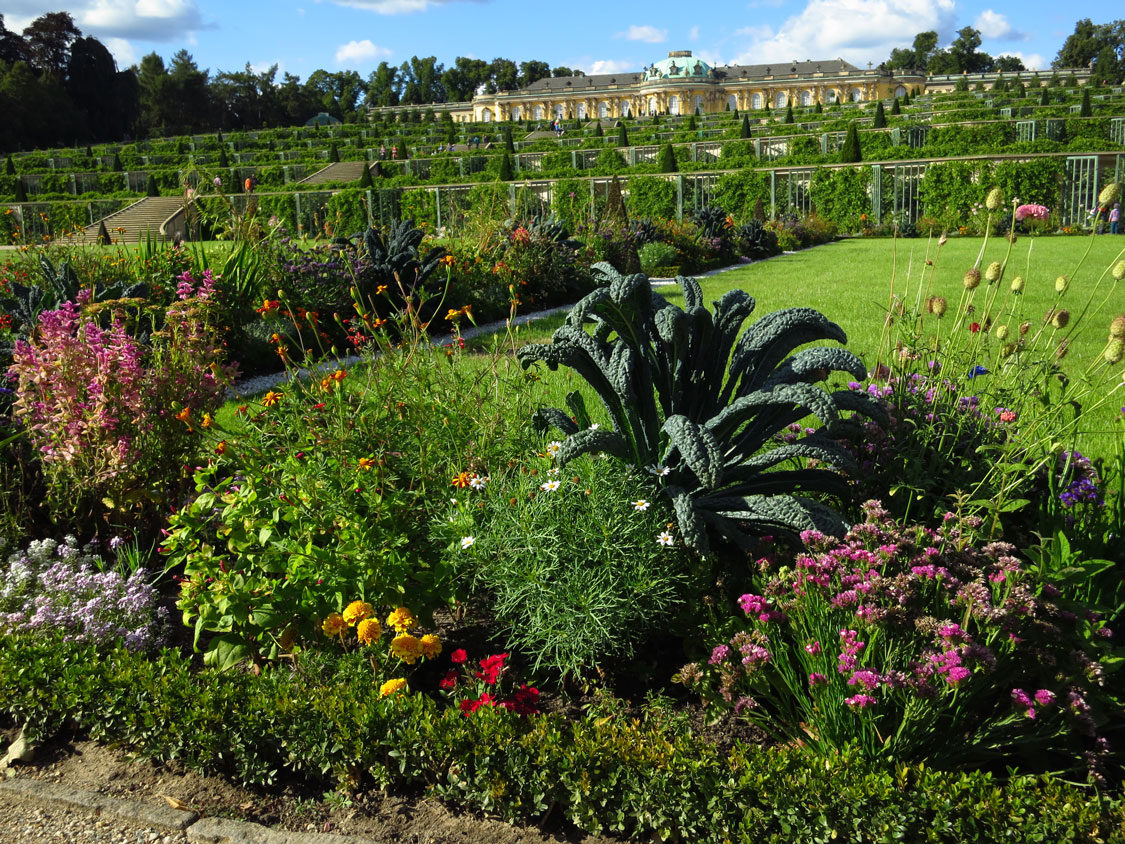
Spend a day exploring the gardens of Sanssouci Palace.
MOST DELICIOUS BITE Currywurst at any of the Curry 36 street-food outlets (expect to queue). Berlin is also renowned for its coffee and cakes.
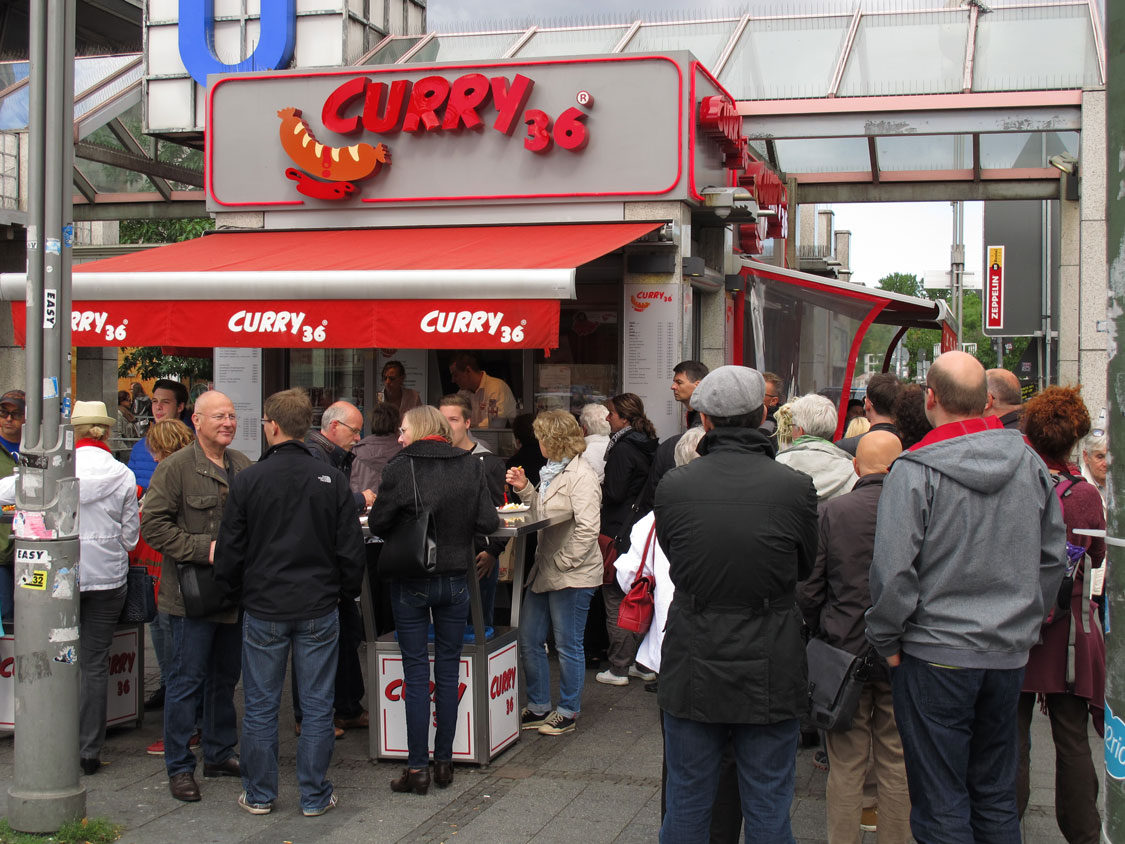
The best currywurst in town. Expect to queue.
SHOP UP A STORM Berlin has some of the best second-hand clothing shops, antique fairs and flea markets in Europe.
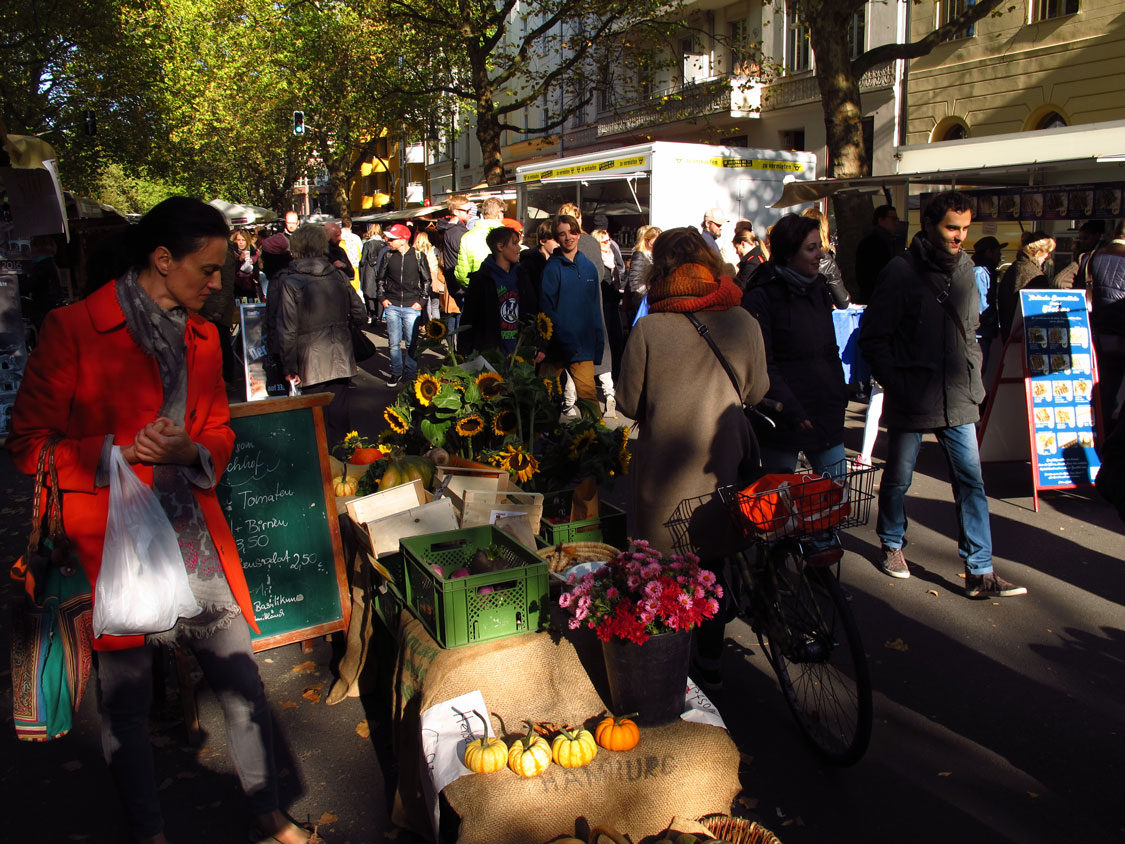
On weekends, street markets spring up all over Berlin.
PLANNING YOUR TRIP
WHEN TO GO Berlin has something to offer all year round, but be warned, the winters are seriously cold.
GETTING THERE Major airlines such as Lufthansa and Swissair fly via their hubs to Berlin.
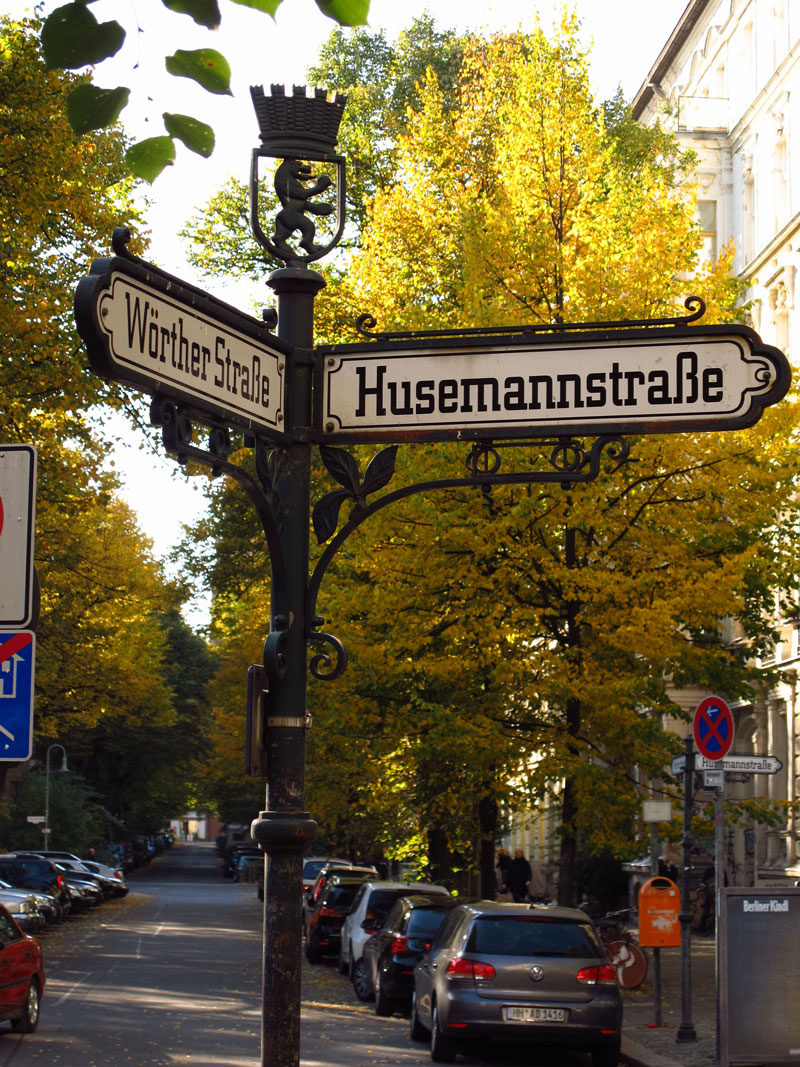
GETTING AROUND Public transport is excellent. It’s a flat, bicycle-friendly city and they are affordable to hire.
VISAS South Africans need a Schengen visa, schengenvisainfo.com
CURRENCY The Euro is the official currency.


